Shakespeare has been used to divert around censorship, “sanitised” and redacted for children, young adults and school use, and even used as a form of protest
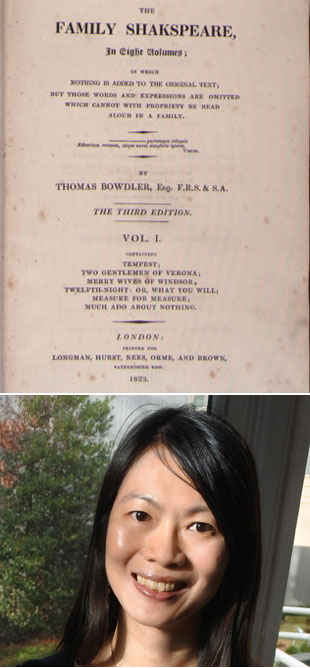

Shakespeare has been used to divert around censorship, “sanitised” and redacted for children, young adults and school use, and even used as a form of protest

In a world filled with new digital tricks, journalists shouldn’t forget traditional verification techniques, says former newspaper editor Peter Sands
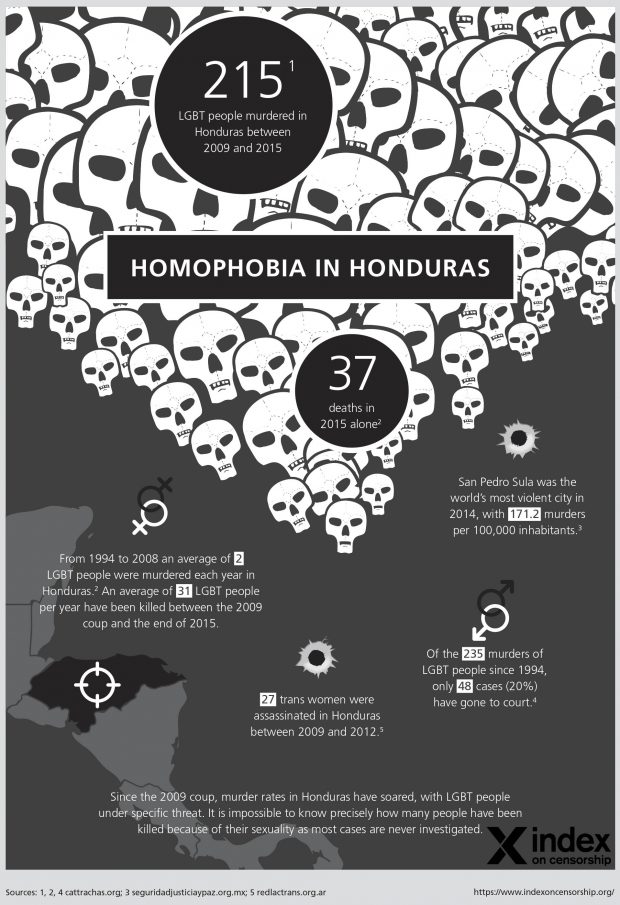
A year after returning from exile, Honduran gay rights activist Donny Reyes still fears a murderous attack at any minute
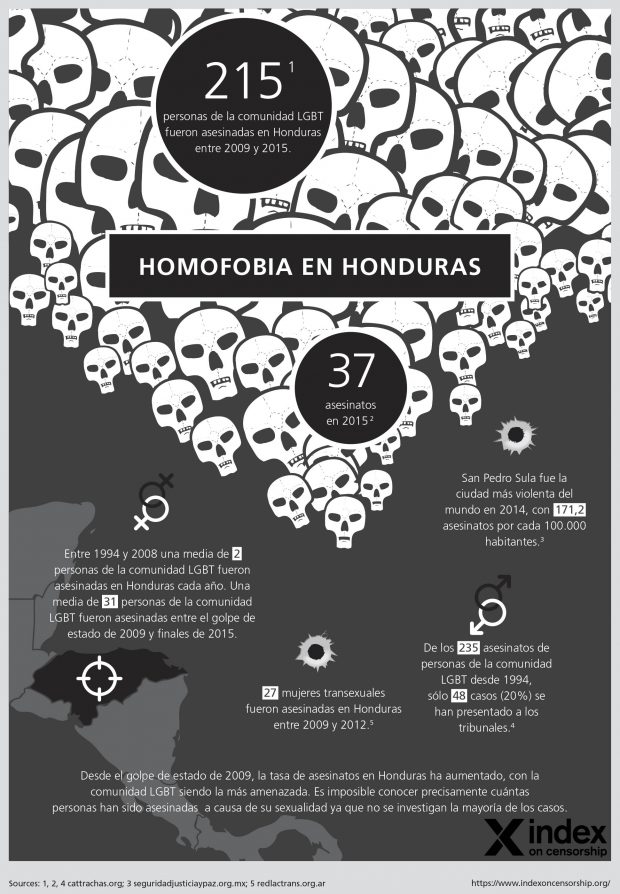
Un año tras volver del exilio, Danny Reyes, un activista homosexual hondureño aún teme ser asesinado en cualquier momento

After visiting his homeland, former Yugloslavia, last summer Edin Suljic was inspired to write his latest poem My Mate Shakespeare
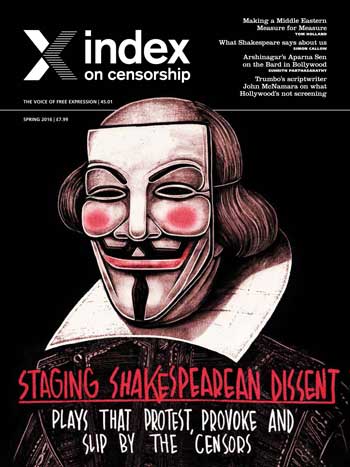
Shakespeare was no stranger to censorship from the Elizabethan and Jacobean police states. Actor and writer Simon Callow charts how Shakespeare’s plays have amused monarchs and dictators but also prompted their anger.

Protest, dissent and controversy are all found within the pages of Shakespeare’s plays. Index on Censorship editor Rachael Jolley introduces a Shakespeare special issue as the 400th anniversary of his death approaches
Shakespeare, protest and dissent is the theme of the Spring issue of Index on Censorship magazine
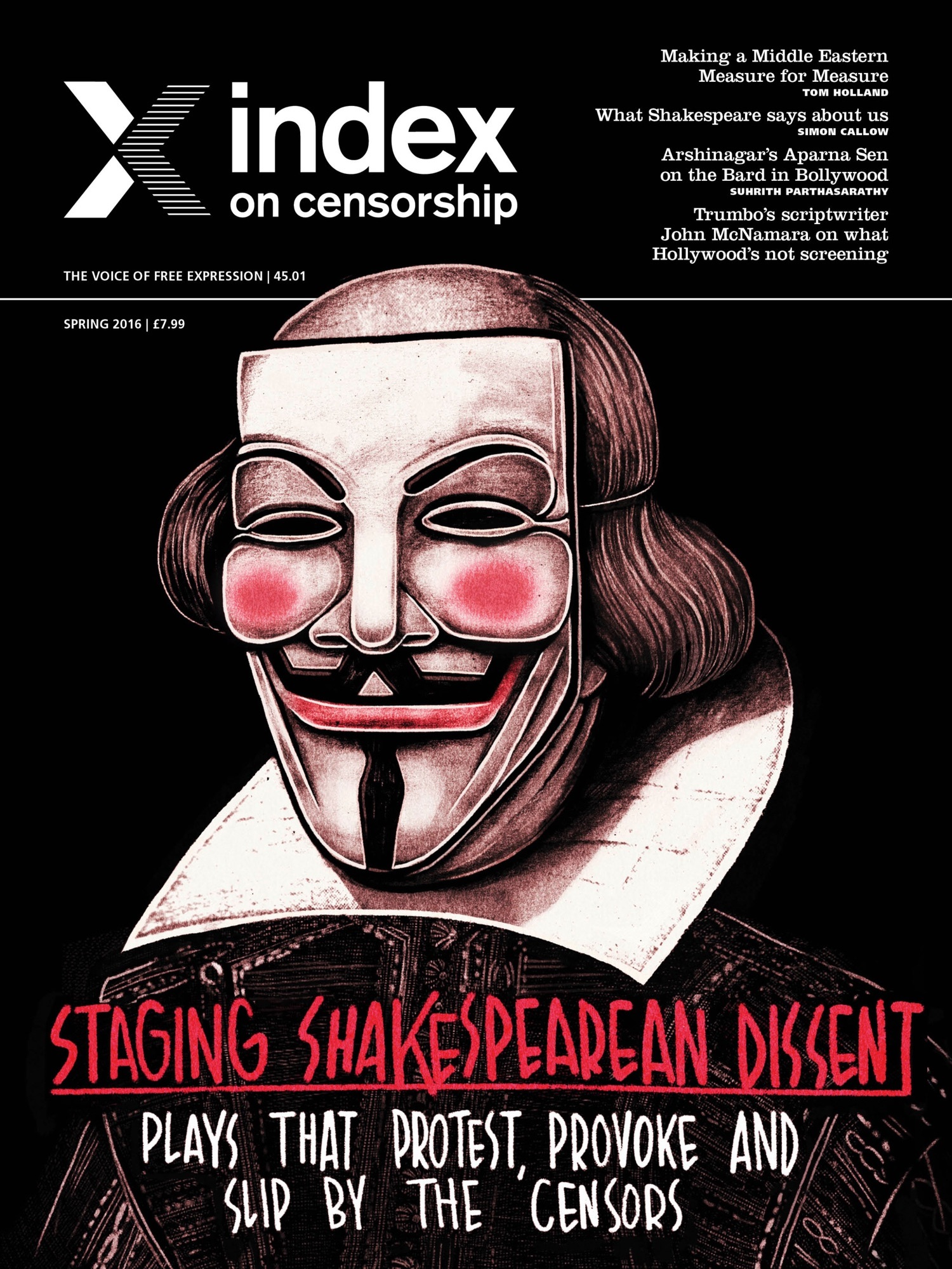
This year brings the 400th anniversary of William Shakespeare’s death and Index on Censorship is marking it with a special issue of our award-winning magazine, looking at how his plays have been used around the world to sneak past censors or take on the authorities – often without them realising. Our special report explores how different countries use different plays to tackle difficult themes.